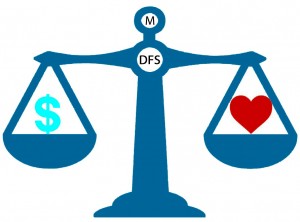Saving Time, Money and Achieving the Best Outcome!
Establishing a very good partnership with your divorce attorney is critical as it has an enormous impact on the process, outcome and cost of your divorce. Take time to carefully pick the best attorney for you. Here are some do’s and don’ts to get you headed down the best path.
 1) Before going to see any divorce lawyer, give some thought to your expectations and how you would like your divorce to proceed. Are going into your divorce interested in fighting and being adversarial during the process or do you wish to have a more amicable experience? Do you want to be equitable and reasonable or do you want your spouse to “pay”? Give some thought to your future; what you want and where you see yourself at various intervals down the road.
1) Before going to see any divorce lawyer, give some thought to your expectations and how you would like your divorce to proceed. Are going into your divorce interested in fighting and being adversarial during the process or do you wish to have a more amicable experience? Do you want to be equitable and reasonable or do you want your spouse to “pay”? Give some thought to your future; what you want and where you see yourself at various intervals down the road.
2) Contact a couple of family law attorneys and ask some questions. After your initial conversation with a lawyer, you should be able to answer these questions:
- Does this lawyer listen to me when I talk?
- Is the lawyer interested in what my goals are or only in his or her own goals?
- Do I match a similar profile of this lawyer’s clientele?
- Do I prefer to work with a female or male attorney or does it matter?
- Is this lawyer considerate of my budget to cover legal costs and is willing to help me stay focused on my priorities so I do not incur unnecessary fees?
- Does this lawyer understand the value of working collaboratively and cooperatively with my CDFA™ and other professional advisors needed in order to best serve my needs?
3) Be sure to hire an attorney that in no way is connected to your spouse. You need your own attorney who does not know nor related to your spouse to get you through your divorce as you will want to keep your divorce matters private – between you and your professional advisors and not give the other side any information you do not need to. In other words, the best strategy is to keep things close to the vest until advised differently by your professional advisors team.
4) Your attorney will need some direction and information from you after you hire one and you will want to respond as quickly, completely, and concisely as you can. Of course, every case is unique, but the following checklist will give you an idea of what information your lawyer will need. Much of it overlaps with what your CDFA™ will also need and depending on whom you hired first; your CDFA may have already helped you gather this information. At the very least, your CDFA will provide you all of the worksheets needed in order to gather the appropriate information both your lawyer and CDFA need from you. You’ll need to disclose:
- Are you sure you want to end the marriage or is the visit to a lawyer meant to be a wake-up call to your spouse.
- Date of separation and/or current living arrangement. Date of marriage or civil union.
- Personal data about you, your spouse and your children (if any).
- Details of your marriage such as when and where you got married.
- Whether there will be issues involving your children – such as custody or access.
- Financial information.
- Legal documents.
- Your divorce goals.
5) Your lawyer is hoping that you will as a client, be well-prepared, can control your emotions, are organized, are willing to listen to their lawyer’s advice – even if they don’t follow it all the time.
6) Your lawyer will expect to be paid on-time and in-full. If your financial situation is bad and getting worse, talk to your lawyer immediately.
7) After learning about your case, your lawyer should create a strategy for your divorce. Be aware that this plan may have to change along the way depending on what your ex to be and his or her lawyer does.
8) Your lawyer should clearly explain all your options (these may change as your divorce progresses), offer advice but respect your wishes if you strongly disagree with a suggested course of action.
9) Understand things may not always go your way and that your lawyer will sometimes have bad news for you. It does not mean your lawyer is incompetent.
10) Expect your lawyer to return phone calls within 24 hours and to consult you before taking any major actions concerning your divorce.
Make sure you stay involved in the process if you want to ensure that your divorce settlement reflects your goals, is financially equitable, gets completed in a reasonable time frame and does not break your wallet. The same applies when working with your CDFA.
______________________________________________________________
Karen helps attorneys; mediators, individuals and couples, navigate through the financial morass of divorce and widowhood. Her expertise lies in understanding the special tax and financial issues that can plague divorce and she helps clients get their financial fair share and equitable settlements. She provides financial analysis, projections and solutions so clients can avoid long-term regret over decisions made early on in divorce and widowhood. Karen offers a range of financial, investment and insurance services that address clients’ complete financial picture and long-term needs before, during and after marriage. She is currently writing a book entitled, “To Have and To Hold Onto Your Financial Fair Share: Financial Decision Making When Marriage Ends in Divorce or Death.”











You must be logged in to post a comment Login